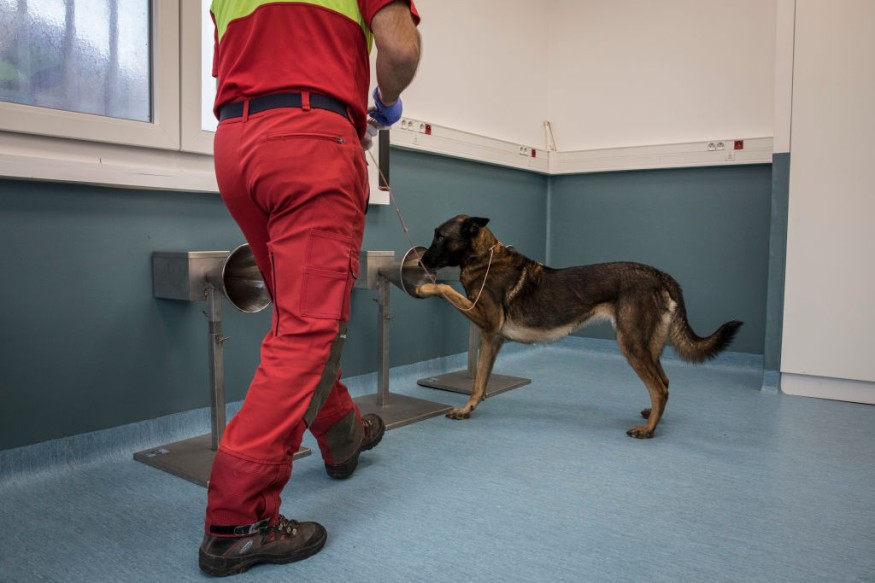Three dogs namely Asher, Strom and Maple could all play an important role in mitigating the COVID-19 pandemic even if they are not scientists nor politicians.
They are not the only dogs that can contribute to controlling the worsening of this global health crisis. Globally, canines undergo training so they can detect the smell of COVID-19 infections.
Dog trainers claim extraordinary outcomes in some circumstances. They claim dogs can identify the virus "with an almost perfect accuracy."
Scientists involved with the initiatives propose that dogs could help control the pandemic as they can screen hundreds of individuals an hour in busy locations like sports stadiums or airports.
They are also less costly to run compared to conventional testing approaches like the RNA-amplification technique PCR.
However, most of these findings have not undergone peer review yet, or they haven't been published, making it challenging for the larger-scale scientific community to investigate the claims.

The International K9 Team
Scientists currently working on more conventional viral trials say preliminary results from dog groups "are intriguing," and they show promise.
There are some doubts, though, if such a process can be scaled up to a level that will enable the animals to make a significant effect.
Early this month, groups working with the animals met via a virtual workshop called International K9 Team to share initial results from trials and to improve how their study is coordinated.
According to Holger Volk, a veterinary neurologist at the University of Veterinary Medicine Hanover in Germany, no one is saying they can have the PCR machine replaced. Still, the sniffing dogs "could be very promising. Volk is also leading an initiative to train and investigate COVID-sniffing dogs.
Eight Dogs Trained
There is only one journal article published on the efficacy of dog at sniffing out COVID-19, by the group of Volk, which he described as "a pilot study."
In this project, researchers trained eight dogs on samples taken from windpipes and mouths of seven hospitalized individuals with COVID-19 and seven uninfected individuals.
As a result, the dogs were able to identify 83 percent of positive COVID-19 cases and 96 percent negatives.
Reports indicate that the false positive, as well as negative rates of the regular PRC lab test vary according to the "brand of test used and the timing of the test."
A methodical review which medRxiv published as a preprint showed the false-negative rate of RT-PCR tests to be two to 33 percent if the same sample is examined at repeated times.
Up to four percent, specifically of four percent of UK PCR test results, the government documents indicate, could be false positives.
The Ability to Determine the Difference Between Urine and Sweat Samples
According to critics, the German dog research used samples from only a few patients. They added, the "dogs could be learning" to determine the specific smell of the samples instead of COVID-19."
In her study, Cynthia Otto, who heads the Penn Vet Working on Dog Centre at the University of Pennsylvania in Philadelphia, found that dogs can determine the difference between either sweat or urine samples from individuals with COVID-19 and those from individuals without the infection.
Otto, who is also working with COVID-19-sniffer dogs, is also working with chemists to understand which VOCs are the sniffing dogs picking up; research that describes this is currently being reviewed.
Commenting on her findings, Otto said, "The dogs can do it." The challenge, though, she added, is the "ignorance that we have as humans" as to what things con confuse these canines.
In an initiative to collect a large data seat, her team is collecting samples of sweat from 1,000 shirts worn overnight by individuals who have tested positive and negative for the virus.
Check out more news and information on COVID-19 on Science Times.












